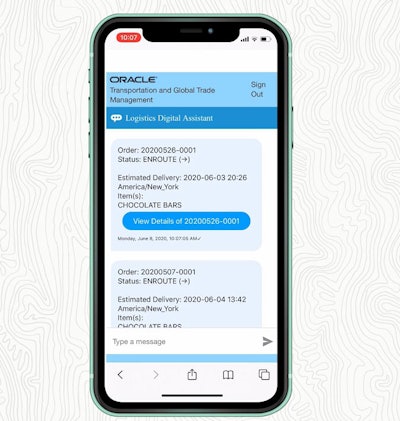
To help organizations build resilient and agile supply chains that drive innovation and growth, Oracle today announced the latest updates to Oracle Fusion Cloud Supply Chain & Manufacturing (Oracle Cloud SCM). The updates help customers increase collaboration across supply networks, proactively manage supply chain assets, and implement long-term supply chain planning.
“The last 12 months have stretched supply chains to the limit as organizations wrestle with the disruptions of COVID-19, shifting global trade agreements, rapidly changing customer expectations, and numerous other unforeseen circumstances,” said Rick Jewell, senior vice president, Oracle Applications development. “With the new capabilities within Oracle Cloud SCM, we are helping our customers navigate this complexity and build more adaptable businesses that can respond to today’s challenges and whatever comes next.”
With Oracle Cloud SCM, organizations can identify new opportunities, rethink processes, and plan and execute across the entire business. The latest features and capabilities within Oracle Cloud SCM include:
- Oracle Logistics Digital Assistant: Provides on-the-go access to real-time supply chain information through a conversational interface that responds quickly, improves user satisfaction, and increases business efficiencies. In addition, users can now easily access order status and shipment tracking remotely without having to navigate through the Oracle Transportation Management (OTM) application or understand complicated data mappings. As a result, a supply chain manager can be informed of all in-transit orders and receive timely updates on shipments from anywhere, on any mobile device.
- Oracle AI Planning Advisor: Uses artificial intelligence capabilities embedded within Supply Chain Planning to display recommendations that optimize new product introduction (NPI) and enable customers to respond to current and anticipated production disruptions.
- Field Service Preventative Maintenance: Helps organizations improve the customer experience through new preventative service flows and break-fix and installation capabilities that are delivered via Service Logistics Cloud for Field Service.
- Multi-Tier Supply Chain Collaboration: Delivers improved visibility into upstream supply to increase overall supply chain responsiveness. Oracle Supply Chain Collaboration can now synchronize upstream supply information such as on-hand balances, purchase order details, and work order details from multiple tiers of external organizations. The data is then automatically shared with Oracle Supply Planning Cloud.
- Planning for Project-Driven Supply Chain: Optimizes supply planning for project-specific material requirements and execution of purchase orders, transfer orders, and work orders – all with project and task references. By matching demand and supply based on flexible rules, customers are able to group projects and plan at the group level when supplies can be combined across many projects.
- New Channel Revenue Management Capabilities: Streamline and optimize trade programs by enabling organizations to create, resolve, and settle claims for deductions and overpayments. In addition, the new capabilities simplify the export of supplier programs and claims.
- Cross-Product Procurement Enhancements: Simplify integration with external systems to help customers integrate and extend procurement processes via new and modified REST APIs. In addition, Oracle Procurement Cloud features new deep links that provide easy navigation directly to application pages without using the menu structure. These links can be leveraged in a variety of ways, including in business intelligence reports, notifications, and third-party application pages.
















![Pros To Know 2026 [color]](https://img.sdcexec.com/mindful/acbm/workspaces/default/uploads/2025/08/prostoknow-2026-color.mduFvhpgMk.png?ar=16%3A9&auto=format%2Ccompress&bg=fff&fill-color=fff&fit=fill&h=135&q=70&w=240)

